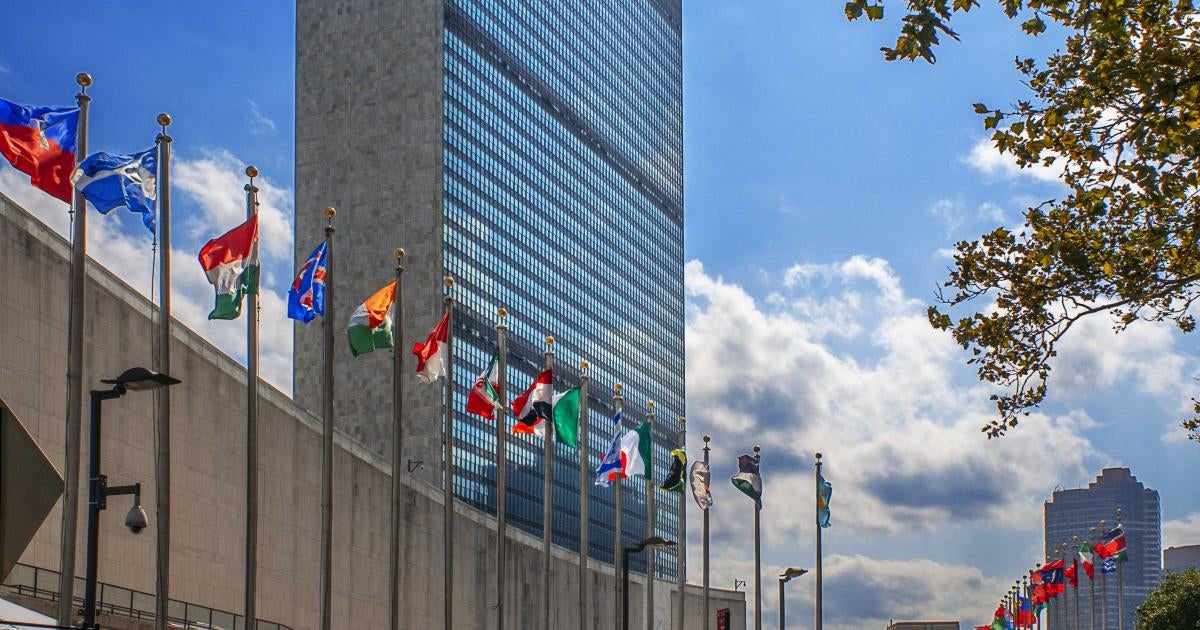(New York) – United Nations member countries should use negotiations on the “Pact for the Future” to commit to strengthening human rights, including promoting economic justice and protecting the right to a healthy environment, Human Rights Watch said.
The UN Pact for the Future, currently being negotiated, is expected to be adopted at the Summit of the Future, a special UN meeting slated for September 2024. Among the issues being discussed by the 193 UN member countries are economic policy reforms and how to realize the right to a clean, healthy, and sustainable environment, as well as the emphasis that should be placed on human rights generally.
“The Pact for the Future shouldn’t become another UN document that gets adopted and then ignored,” said Louis Charbonneau, UN director at Human Rights Watch. “Governments should commit to action to end widening economic inequalities that deny billions of people their rights and a climate crisis that’s taking a mounting toll on lives and livelihoods around the globe.”
Many governments that recognize the importance of sustainable development often ignore that human rights are key to achieving this goal, Human Rights Watch said. They need to confront climate change and responsibly manage new technologies. And while most governments acknowledge the importance of complying with international humanitarian law in conflicts, they disagree on how to address atrocities against civilians in Gaza, Sudan, and Ukraine.
Although the final text will be non-binding, the pact presents a critical opportunity to affirm a vision of human rights that can help bridge some of the sharp divisions between governments on these and other issues. In the process, governments should strengthen the ability of the UN system to deliver on the UN Charter by protecting and promoting peace and security, development, and human rights.
Some governments were disappointed with the initial draft of the pact due to what they considered its scant attention to human rights, diplomats told Human Rights Watch.
A number of countries are seeking to strengthen the human rights language in the draft pact. However, China, Russia, Cuba, Iran, and others have sought to weaken, dilute, or delete references to human rights.
Western governments are partly to blame for leaving space to those critical of a human rights approach, Human Rights Watch said. Their selective application of human rights undermines the credibility of such an agenda, particularly for countries in the Global South. While the United States and other Western countries justifiably condemn Russia’s atrocities in Ukraine, for example, many of them have not shown the same resolve concerning Israel’s atrocities in Gaza. While the European Union says it champions human rights protection globally, it opposes efforts at the UN to make the international tax system fairer for developing countries.
All governments’ assertions in support of human rights would resonate more powerfully if they applied them consistently, including in their own countries and with their friends and allies, Human Rights Watch said.
Rather than dismissing the views of countries in the Global South on international financial reforms, Global North states should support much-needed changes to the international financial architecture. Those include aligning international financial institutions’ policies and practices with human rights, supporting efforts to achieve a global tax treaty, combatting illicit financial flows, and reducing governments’ debt burdens.
The concept of a “human rights economy,” which has been championed by the UN High Commissioner for Human Rights, Volker Türk, offers the potential to meet the legitimate demands of Global South countries through a more holistic approach to human rights.
Governments should also ensure that the pact reaffirms the centrality of human rights in confronting the climate crisis. They should explicitly endorse the right to a clean, healthy, and sustainable environment, recognized by the UN General Assembly in 2022, while emphasizing the urgent need for phasing out fossil fuels through a just transition that is consistent with human rights. Fossil fuels are the primary driver of the climate crisis, and all stages of their use have been linked to severe human rights harm.
The pact should also highlight the importance of civil society and the rights to freedom of speech, association, and peaceful assembly. The upcoming UN Civil Society Conference in Nairobi, Kenya on May 9-10 is an opportunity for the UN leadership and delegations overseeing the drafting process to hear from hundreds of civil society representatives from around the world. The drafters should listen carefully to civil society priorities for the Pact for the Future and its two annexes, the Global Digital Compact on “shared principles for an open, free and secure digital future for all” and the Declaration on Future Generations. Outreach to civil society organizations in the drafting process has so far been haphazard.
“Instead of standing by while governments trample on human rights, or selectively condemning abuses by their adversaries while ignoring those of their friends, UN member countries should commit to ending repression wherever it occurs and improving everyone’s lives,” Charbonneau said.



